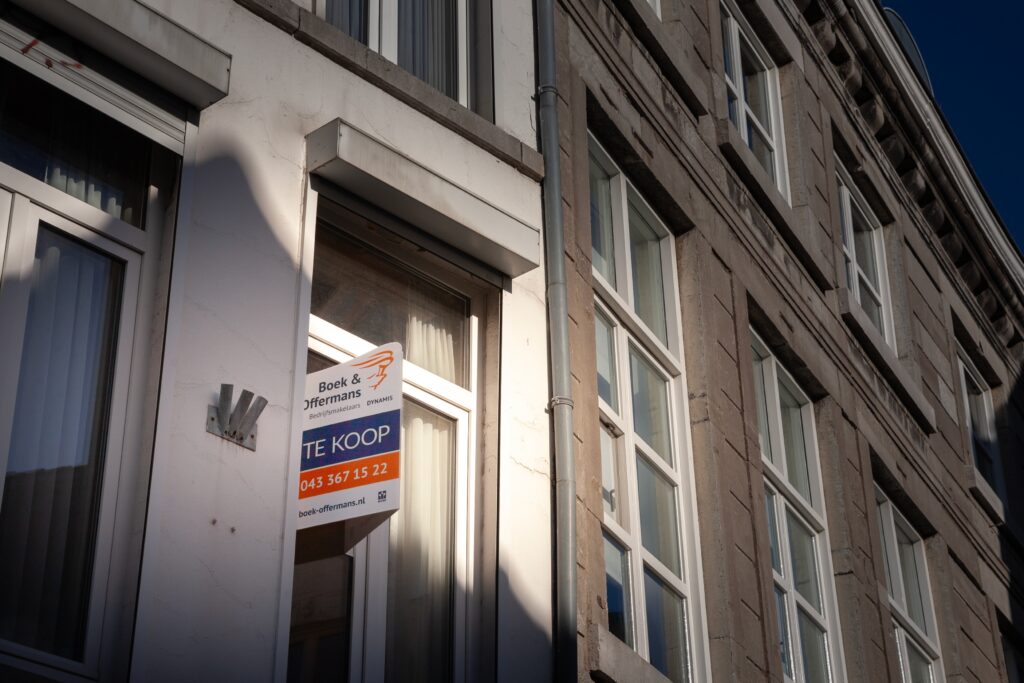
In short
- The asking price reflects what sellers hope for — the selling price reflects what the market accepts.
- Average asking prices in the Netherlands appear higher because unsold, high-end listings distort the data.
- In reality, many homes that sell go above their original asking price — especially in competitive areas.
- For expat buyers, understanding this difference helps avoid frustration and supports smarter negotiation.
- The real insight lies in local data: time-on-market, bidding trends, and comparable sales.
Introduction
If you’re new to the Dutch housing market, one of the first puzzles you’ll encounter is the gap between asking and selling prices.
What you see online is often not what buyers actually pay.
Coming from countries where property prices are more transparent, this can feel inconsistent — or even misleading.
But in the Netherlands, this isn’t trickery; it’s simply how supply and demand interact in a fast-moving market.
Let’s unpack why the gap exists, what it reveals about market dynamics, and how you can use this knowledge to buy with clarity and confidence.
1. The numbers don’t tell the whole story
According to the Dutch Association of Real Estate Agents (NVM), the average asking price of homes currently on the market is around €596,000, while the average selling price of homes sold in the same quarter is about €496,000.
At first glance, that looks like buyers are getting €100,000 discounts — but that’s a misunderstanding.
The two figures describe different groups of homes.
2. Two separate markets behind the statistics
- The €596,000 asking-price average covers homes still for sale — often larger or luxury properties that take longer to sell.
- The €496,000 selling-price average reflects homes already sold — usually mid-range or competitively priced.
Think of it like a pond: the homes still listed are the fish swimming around; the sold ones are the fish already caught.
When you compare only homes that actually sold, the picture changes:
their average asking price was roughly €472,000, and they sold for €496,000 — about 5 percent above asking.
That’s the real indicator of overbidding in today’s Dutch market.
3. Why average asking prices seem inflated
Several factors push the national asking-price average higher than reality:
- Expensive homes stay longer on the market.
High-end listings linger, skewing the average upward. - Mid-range homes sell quickly.
Properties priced between €300,000 and €450,000 often sell within weeks, so they vanish from the “for sale” data early. - Regional differences matter.
Homes in less competitive regions remain listed longer, inflating the overall average.
In short, the national asking-price figure shows what hasn’t sold yet — not what typical buyers actually pay.
4. Smart strategies for expat buyers
Understanding these dynamics gives you an edge when assessing listings or planning bids.
Here’s how to apply it in practice.
Expat Buyer Checklist
1. Focus on your own segment
National averages are meaningless. Study your price band and your target city or neighbourhood instead.
2. Watch the time on market
Homes that sell within days attract strong demand. Long-listed properties may be overpriced or poorly positioned.
3. Ask about “days on market” data
A good agent will provide this insight — it tells you how competitive the pricing really is.
4. Recognise pricing tactics
Research shows that roughly 63 percent of fast-selling homes were intentionally underpriced to spark bidding competition.
5. Budget beyond the purchase price
Include transfer tax, mortgage-setup fees, notary costs, and currency-exchange expenses.
Keep a financial buffer for moving or renovation surprises.
5. The bottom line
The difference between asking and selling prices in the Netherlands isn’t a mystery — it’s statistics.
Asking prices show what’s offered; selling prices show what’s achieved.
For expat buyers, the smartest approach is to focus less on national averages and more on your personal market reality.
Base your strategy on concrete data — comparable sales, days-on-market, and realistic valuations.
That’s how you buy with confidence, clarity, and control.
Disclaimer
This article is intended for informational purposes only.
Market data are based on public sources as of October 2025.
Every property transaction is unique. Always seek professional advice from a licensed financial advisor or certified appraiser before making decisions.
Recente berichten

De sleutel ligt binnen handbereik
Koop je huis met kennis en zekerheid- plan een gratis kennismakingsgesprek!
Goede voorbereiding maakt het noodzakelijke verschil, ik help je stap voor stap zodat jij met vertrouwen je huis koopt!

Auteur
-

Walter Nieuwendijk helpt mensen grip en rust te krijgen over hun geld en hun woning. Als financieel adviseur bij Financieel Fit en gecertificeerd aankoop- en verkoopbegeleider combineert hij jarenlange ervaring in de financiële dienstverlening met diepgaande kennis van de woningmarkt. Zijn aanpak is helder, persoonlijk en gericht op duurzame oplossingen.
Naast zijn werk als adviseur is Walter de oprichter en een vaste auteur van Kopen met Kennis, het kennisplatform voor iedereen die goed voorbereid een woning wil kopen. Hier deelt hij praktische tips, marktinzichten en strategische adviezen waarmee woningzoekers en huizenkopers sterker staan in een steeds complexere woningmarkt.
In zijn loopbaan heeft Walter honderden mensen begeleid bij het financieren en kopen van hun woning, het optimaliseren van hun financiële situatie en het opstellen van toekomstbestendige plannen. Daarbij kijkt hij niet alleen naar de cijfers, maar vooral naar wat mensen écht belangrijk vinden: zekerheid, overzicht en financiële vrijheid.
